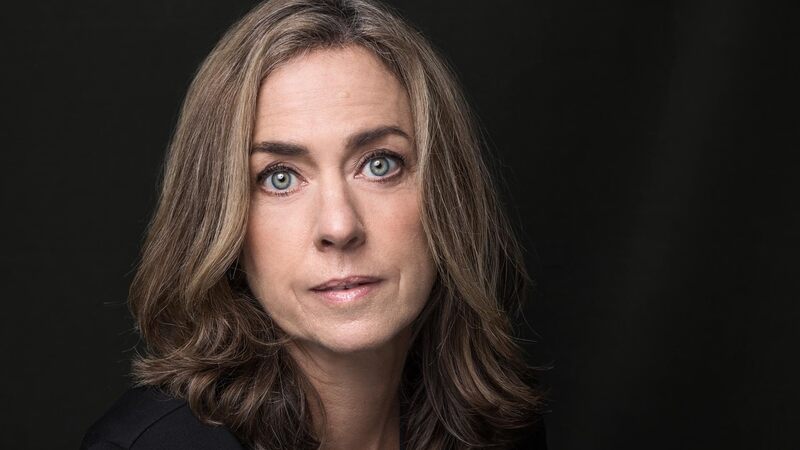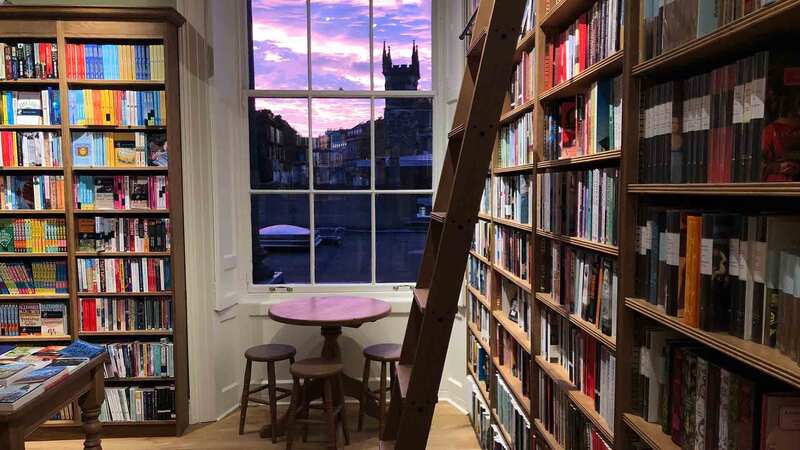You are viewing your 1 free article this month. Login to read more articles.
gal interrupted: What does the loss of gal-dem mean for the book publishing industry?
A pipeline for young, Black talent in the writing and journalism sectors, online magazine gal-dem recently announced it would close owing to economic concerns. How will the move affect its writers – and the talent pool book publishers often draw on?
When I took the phone call, I was pacing up and down Granary Square in London’s King’s Cross. It was 2015. That conversation – with Liv Little, who had just set up a nascent online magazine called gal-dem – would chart the course of my career, moving it in a new direction of travel like the dams and locks guiding the canal that ran placidly beside me.
Last orders
Last month, the gal-dem team announced that, after eight years, the award-winning outlet dedicated to sharing the perspectives of women and non-binary people of colour was closing, leading to an outpouring of support, appreciation, devastation and grief on social media, in newspaper columns and even in Parliament. In a statement on the gal-dem website, the team said the financial instability caused by the Covid-19 pandemic and economic downturn had led to its closure.
I’m prone to narrativisation, as most life writers are. But it’s not an overstatement to say gal-dem is the primary reason I have a début essay collection, black girl, no magic, coming out with HarperCollins in a month’s time. gal-dem gave me my first ever byline. It gave me a dating column. And I’m not the only one.
“At least three or four writers I worked with who were very, very fresh, or who had never written before they worked for gal-dem, have gone on to get book deals,” Charlie Brinkhurst-Cuff, former editor-in-chief at gal-dem, tells me. She joined the team early on in its development, before its official launch in 2015, after two friends suggested she join their first London meeting. “I got involved with gal-dem because I had this feeling as soon as I started working within the journalism industry, that there was something so deeply, fundamentally wrong with it,” she adds. “I felt very alone at the beginning of my career.”
“I got involved with gal-dem because I had this feeling as soon as I started working within the journalism industry, that there was something so deeply, fundamentally wrong with it” — Charlie Brinkhurst-Cuff
Particularly for prospective non-fiction authors, building a portfolio of journalism, a public platform and a social media following increases your chances of securing a traditional publishing deal. The need to show legitimacy (why you?) and an audience (who’s heard of you?), separates it from the fiction space. Brinkhurst-Cuff, who has edited two non-fiction essay collections—Mother Country: Real Stories of the Windrush Children and Black Joy—says her work at gal-dem goes a long way to explaining why Hachette and Penguin published the titles.
But like publishing, journalism has a long-standing issue with the ethnic diversity of its staff. In 2017, a report by the National Council for the Training of Journalists (NCTJ) did not find any “underlying changes” in the proportions of journalists from BAME groups or lower socio-economic groups. In 2022, new NCTJ analysis found little had changed.
Foot in the door
This makes specialised and youth-led outlets such as gal-dem, Black Ballad, Polyester and Skin Deep a vital entry point for aspiring non-fiction writers from underrepresented groups. “[It’s] a point of pride for me to know that we supported people with getting their first foot in the door,” Brinkhurst-Cuff says.
Dr Annabel Sowemimo’s book, Divided: Racism, Medicine and Why We Need to Decolonise Healthcare, was published last month. Sowemimo, an NHS registrar in sexual and reproductive health, a PhD candidate and Harold Moody Scholar at King’s College London, and the founder of the Reproductive Justice Initiative, started writing for gal-dem in 2016 and went on to write the Decolonising Healthcare column for the platform in 2018. This brought her to the attention of her literary agent and the publisher Wellcome Collection/Profile Books.
“Platforms such as gal-dem and Black Ballad are honestly essential,” she says. “With all the advantages that I have – I’m a doctor, I move in spaces where you might meet publishers – I really could not see a way through. I had Googled literary agents before. And without having these platforms, this would never have happened for me. I’m really sad that future generations won’t have that.”
Leah Cowan, author of Border Nation: A Story of Migration, shared a similar road to publication. After working as the politics editor at gal-dem, she was approached by a literary agent and the radical indie publisher Pluto Press in 2021. For her, gal-dem gave her the space to hone her craft and expand her knowledge. “I think that gal-dem provided a really useful space where people who wanted to go on to write books could be found [in] the very white crowd of non-fiction writers who get published,” she says.
Fundamental change
While small independent outlets do important work in platforming underrepresented voices, this can sometimes be used as a shortcut to making fundamental changes to the publishing industry itself. And in an industry that reportedly had sales totalling £6.9bn between 2021 and 2022, and saw 4% growth, according to the Publishers Association, why should it be left to these outlets to force through change?
“There are larger questions to be explored around who is doing the commissioning in publishing houses,” Cowan adds. “If they’re turning to places like gal-dem to trawl through our articles, that’s fine, but maybe they want to think about who is doing that job and potentially hiring someone who already has connections and ideas and genuine interests in authors of colour and the issues that we’re writing about.”
In response to the resurgence of the Black Lives Matter movement, the Black Writers’ Guild formed in 2020 and wrote an open letter to the industry. Signed by more than 200 writers, the guild challenged the publishing industry to address racial inequality within its own ranks, including an audit of the books published by Black authors and the absence of Black commissioners. All the “big five” publishers committed to taking action. Three years later, the picture of progress is a mixed bag. The latest Publishing Association survey found small improvements in ethnic representation. But only 17% of respondents were from non-white backgrounds, woefully below the level expected considering that most publishing houses are primarily based in London, where non-white groups comprise some 46% of the population, according to the 2021 Census.
“Books – and the way in which they can be archived – are such magical things" — Charlie Brinkhurst-Cuff
That is not to say no progress has been made either. “We have got so many brilliant writers publishing books that would not have seen the light of day 10 years ago,” Sowemimo says. But with the cost-of-living crisis tightening people’s budgets and reducing disposable incomes, there is a risk the industry will revert to playing it safe and being less willing to bet on “risky” titles and authors. And each specialised outlet that folds reduces the options for coverage and serialisation for début authors of colour. “The very cynical side of me says, ‘One less outlet to tick off your list’,” says Jendella Benson, head of editorial at Black Ballad and author of the novel Hope & Glory. “Because for some publicity and marketing teams, their desire to engage with diverse audiences goes as far as sending a press release to established platforms with that audience.”
Benson is more optimistic about the lasting impact that spaces such as gal-dem and Black Ballad have had on the creative industries. “My first print byline was in gal-dem’s first print issue. For those of us without the connections, without the formal education, but with nothing but raw talent, where else can we get that?”
The inaugural gal-dem print issue sits on the bookshelf in my bedroom, alongside a copy of the gal-dem Guardian Weekend takeover that I was lucky enough to write for, and the other features that opportunity spawned. They are physical reminders of what we achieved. Something to hold onto. “It’s one of the reasons why the gal-dem print issue was so essential,” Brinkhurst-Cuff says. “Books – and the way in which they can be archived – are such magical things; they have such a lasting impact.”
Excerpt from gal-dem’s goodbye letter:
We want to wholeheartedly thank everyone who has been a part of this journey with us – whether you have been a reader from the beginning, a party-goer from our early days, or a more recent member. It meant so much for gal-dem to exist in the world, to tell the stories that mattered to us and our lived experiences, and to do it with authenticity, care and heart. We thank our team for doing that work so brilliantly. We are so proud of what we have been able to achieve with our cherished community of staff, advisors, freelances, readers, followers and listeners. While this chapter is ending, we hope that the spirit of what gal-dem proved possible over eight years will live on with you all. gal-dem to us, has been so much more than a magazine.













